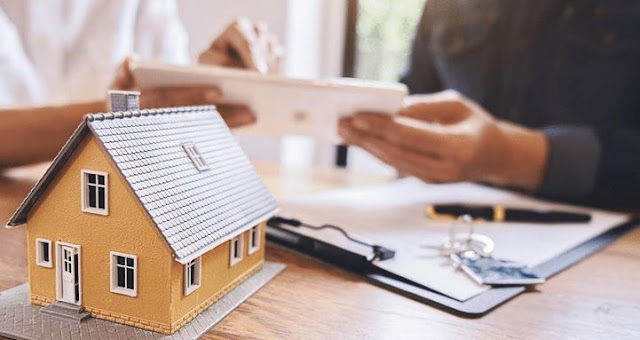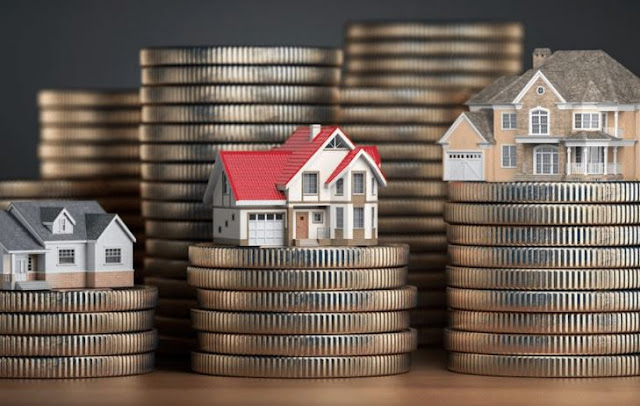
If you are a new property owner, there are some things that you should know. Hopefully, you have done some research before you bought your new home to see what problems you should look for before you bought. You should also have had a property inspection before you signed your paperwork. This would have helped you to see what problems existed in your home.
There are people out in the world that can help you to find these problems and even help to fix anything that needs fixing. There are also people like KristaMashore.com that can help you to find the right people. She does real estate coaching and has other classes that she does.
This article will give you a list of things you should be on the lookout for when you have purchased your first property. You can also do your own research and see if you can find more information. There is a bigger list of 10 top things that you need to look for when you do some research below.
List Of Property Ownership Top 10 Tips
1. Inspection Report
You should have a copy of your home inspection report. It should have been a part of your paperwork that you received when you closed on your home. You should look at this report to see what things might have been on there that needed repair.
You can use this as a starting point to start the repairs on your home. There might also be things on the report that need closer observation and you can check those items to see if they need repaired at this time.
2. Know Your Enemy
Water is the cause of most of the problems around your home. The places where you need to look for water damage is your roof, basement, and foundation. This is where 90% of your water issues will appear. You also need to look at your bathrooms, kitchen, and laundry rooms regularly to look for leaks. If you find a leak, it might be as easy as tightening a nut or bolt. You could also do some preventative maintenance such as caulking around doors and windows to prevent water from coming in around those areas: https://www.nytimes.com/guides/realestate/home-maintenance-checklist.
You also need to check your gutter system for leaks and for debris that might be in them. If you have too much debris in your gutters, this could lead to water getting into your foundation. If you keep them clean you can prevent expensive water repairs.
3. Roof
You should also check your roof regularly for spots where the shingles are worn or missing. You can do this by staying on the ground and using binoculars for your safety. You can also check the flashings to see that they are not worn or falling apart.
If your roof is more than ten years old, it should be inspected by a professional. The last thing you want is a leaky roof that could damage the inside of your home or breed mold. A damaged roof could even let animals inside your house!
4. Circuits
You should map out your circuit system for your home to see which outlets go to which breakers. Do not trust the previous homeowner for the labels that are on the breaker box, relabel it once you map it out. You also should look at your different appliances to see ho w much energy they take to run. Most circuits can only have fifteen amps so make sure that you are not overloading the breakers.
You also need to make sure that you have ground fault circuit interrupters, or GFCIs, installed near the kitchen, bathroom, laundry room, and any outdoor outlets. Check this site to see more information about GFCIs. This will help prevent fires around these areas. You should also tighten all outlet covers and replace any that need replacing. You need to remember that you should not use extension cords to replace any permanent wiring.
5. Know Your Shutoffs
Know where all your shutoffs are and how to turn them off. Your main electrical shutoff should be at your breaker panel or n ear a service entry outside. The shutoff for your water should be on the wall facing the street.
You will also have a main shutoff in your yard somewhere. You need to make sure that all these areas are easily accessible in case of an emergency.
6. Check For Leaks
You will need to inspect all your plumbing and your fixtures for leaks. You need to be sure that toilet and sinks are easy to turn and are not rusted. If they are rusted, it is time to replace them. If your faucets are leaking, you probably need a new washer for it. You can easily find these washers at your local hardware store.
If your toilet continues to run and not stop, you probably need a new flapper valve. All of these are easy fixes if you take care of them before they get too bad.
7. Consider Home Warranties
Some people think that these are a waste of time and money, but others swear by them. For some it brings them peace knowing that if a home appliance breaks down, it is usually covered in the home warranty.
See here for more information about home warranties: https://www.forbes.com/home-improvement/home-warranty/are-home-warranties-worth-it/. If your appliances break down, you can use your warranty instead of hiring a costly repairman.
8. Insurance
Check your insurance coverage to make sure that you have replacement costs for your items and your home. You need to see that the policy states what will be replaced in case of a huge catastrophe.
You will also want to video all your items of worth in your home. Write down serial numbers and the date that you purchased these items if that is possible. You can use this for proof when you need reimbursed for these items.
9. Flood Policy
When buying insurance, make sure that you add a flood policy, otherwise you might not be protected during a flood. Although floods do not happen that often, when they do they cause extensive damage.
It is best to be prepared for the just in case instances. You should have flood insurance even if you are not in a flood plain. Things can happen such as an extremely heavy rainfall, construction runoff, or just improper drainage. All of these can ruin your home, so be prepared.
10. Do Your Homework
You will want to check your tax and insurance information and compare it to homes in your area. If you are paying much more than other homeowners in your area you can fight the extra taxes at your assessor’s office.
You do not want to have to pay more than your fair share so be sure to check it out thoroughly. Work with an accountant to see what property expenses you can write off and what real estate costs you are stuck paying.
Proper Property Ownership Conclusion
These are just a few of the things that you need to be a ware of when you buy a new home or property. If you check out all these things, you will be less likely to have a costly emergency later on down the road. Preventative maintenance can go a long way to avoiding costly repairs. Check these things out before they become too costly on your properties.
You can also do research to see what other things that you might want to check out when it comes to real estate ownership. This is just a beginning list to get you started. You can also ask friends and family to see what costly repairs that they have that you could fix before they get too bad. Home ownership and property investing aren't easy but they are worth it when done right!



